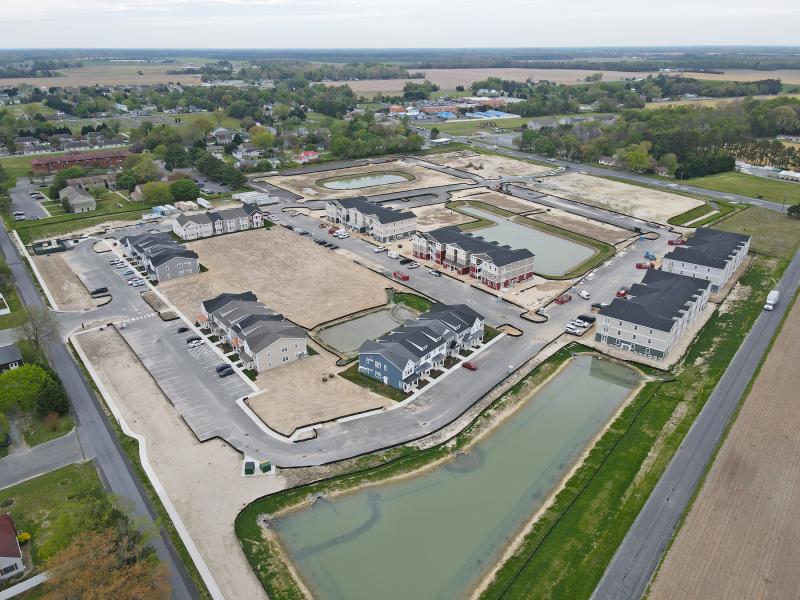Milton ad hoc committee hears from affordable housing developers

As part of its mission to examine ways to increase affordable housing in town, the Milton Affordable Housing Ad Hoc Committee has begun hearing from those who develop lower-priced units as it works toward crafting a recommendation for town council.
At its July 11 meeting, the committee heard from Kevin Gilmore, CEO of Sussex County Habitat for Humanity, which conducts a number of different projects aimed at, as Gilmore said, creating a world where everyone has a decent place to live.
Gilmore said he defines affordable housing as a household that spends 30% or less of their income on housing. Currently, he said, 30% of Sussex County households are spending more than 30% of their income on housing. Gilmore said on average, Sussex County households spend 53% of their income toward housing and transportation costs.
To help create more affordable housing, Habitat for Humanity has several programs available. First, Gilmore said, is Sussex Habitat’s homeownership model. This program is available for qualified applicants, which is based on need and ability to pay. Under the program, Sussex Habitat helps fundraise the cost of the land and the building of the house through avenues such as the ReStore and grants and sells the house to the homebuyer with affordable financing. Gilmore said the homeowner puts in what he called sweat equity in helping to build the house, along with Habitat volunteers. All told, he said, Sussex Habitat has built nine homes in the Milton area.
Gilmore said Sussex Habitat has other affordable housing programs, including its rehabilitation program and neighborhood revitalization projects. In the latter case, he said, Sussex Habitat has bulk purchased properties and rehabilitated them, including 12 homes in Georgetown and Laurel and a plan for nine homes in Milford in 2025.
In June, the committee heard from developer Preston Schell, who is designating 36 units in the 240-unit Cypress Grove development as workforce housing. Schell said he has found that workforce rental units are more popular than sales of workforce units for two reasons. The first is that these types of units have deed restrictions that limit the seller’s proceeds from any sale, as part of an effort to keep the home affordable. The second reason, Schell said, is because renting offers more flexibility over buying, as it is easier for the renter to pull up stakes.
Schell said a town interested in workforce housing development could attract developers by reducing or waiving building permit fees, increasing housing density and relaxing code restrictions on things like setbacks. He also suggested the town should have someone on staff to serve as a resource to provide citizens with information regarding financing programs for home rehabilitation.
The committee is planning to hold one more presentation from representatives of nonprofit affordable housing developer Milford Housing Development Corporation at its Thursday, Aug. 22 meeting before it begins work on assembling data for a presentation to town council. The committee, chaired by planning and zoning Commissioner Lynn Ekelund, was formed as a way to craft policies related to affordable housing, which is mentioned as part of the town’s comprehensive development plan.

















































